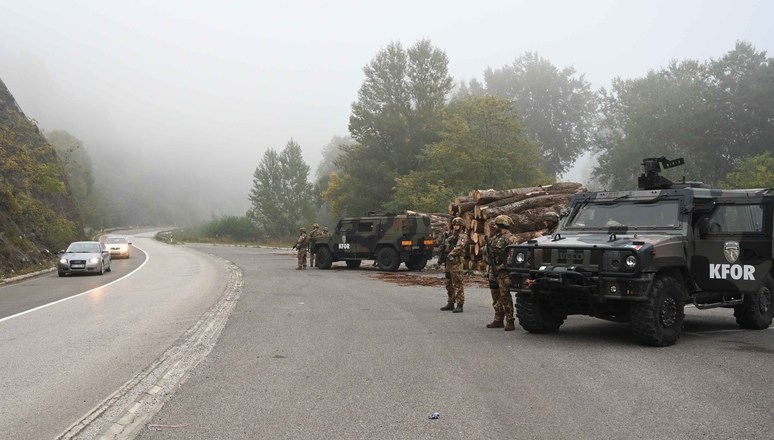The sudden escalation in tension in the north of Kosovo was temporarily resolved last week in the framework of the EU-facilitated dialogue between Kosovo and Serbia.
The tension erupted because of a dispute between the two countries on which licence plates Serbian vehicles entering Kosovo should use. The Serbian population in the area protested against a decision by Pristina that drivers from Serbia must use temporary plates valid for 60 days in the neighbouring country.
Following discussions facilitated by Miroslav Lajčák, EU Special Representative for the Belgrade-Pristina Dialogue and other Western Balkan regional issues, the chief negotiators of the two countries reached an arrangement to resolve the tensions in the north of Kosovo and work towards a sustainable solution allowing freedom of movement for all people.
To de-escalate the tensions, they agreed to remove the special police units currently deployed at two border crossings simultaneously with the roadblocks. As a temporary solution until a permanent solution is agreed, the parties will apply stickers on the licenses plates of vehicles to remove national symbols.
The NATO led Kosovo Force (KFOR) will also deploy at the border crossing and will remain for approximately two weeks to protect a safe and secure environment and guarantee freedom of movement.
A spokesperson for the European Commission confirmed on Monday morning (4 September) that the first part of the agreement was successfully implemented on Saturday. This entailed the withdrawal of the Kosovo Special Police Units from the north of Kosovo, dismantling of the roadblocks and deployment of KFOR to the two crossing points in the north for approximately two weeks.
“In line with the arrangement, the implementation of the sticker regime for licence plates started at 8 am this morning,” the spokesperson told The Brussels Times. “Early reports from the crossing points indicate a smooth rollout of stickers so far and regular transit of vehicles in both directions. This is important for freedom of movement of the citizens.”
The EU welcomed the outcome of the discussions and urges both parties to constructively engage in the Dialogue in order to make swift progress on comprehensive normalisation of their relations. The main issue of mutual recognition, a condition for Kosovo and Serbia to join the EU, however remains unsolved.
According to Dr Ana Milosevic, a post-doctoral researcher on memory politics at the University of Leuven, the EU lacks or is not using its leverage in the Western Balkans and has not learned any lessons from failed dialogues. “Although the EU prides itself in having experience and needed expertise in the domain of conflict resolution, that kind of ‘know-how’ has been largely outdated.”
“The current situation between Belgrade and Pristina once again confirms what those unlearned lessons are: when citizens are held hostage of ethno-nationalists, the myths, prospective futures and wishful thinking have little if any value.”
After years of dialogue, EU might have expected that Kosovo and Serbia would agree to use their national licence plates when crossing the border, as normally is the case in the EU. The temporary sticker solution is innovative and defused the tension for the moment but illustrates also the deep divide between two neighbouring countries that both aspire to join the EU.
M. Apelblat
The Brussels Times

